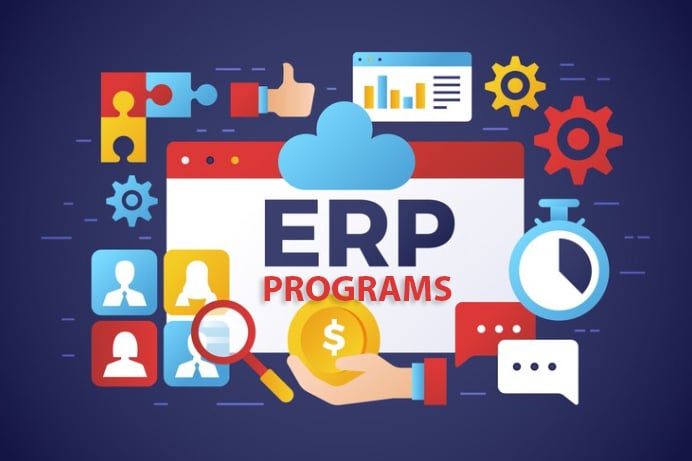Unleashing Efficiency and Growth with ERP Programs
news.metroandalas.co.id | ERP Programs – In the dynamic world of business, where every decision counts, the need for effective management of resources, data, and processes has never been more critical. This is where Enterprise Resource Planning (ERP) programs come into play, serving as the backbone of modern businesses. In this article, we will explore what ERP are, how they work, and the transformative impact they have on organizations of all sizes.

Introduction to ERP Programs
Enterprise Resource Planning (ERP) programs are comprehensive software solutions designed to streamline and integrate various business processes and functions. These programs enable organizations to manage their resources efficiently, make informed decisions, and respond swiftly to market changes.
Key Components of ERP Programs
Integrated Modules
ERP consist of modules that cover different aspects of a business, such as finance, human resources, inventory management, and customer relationship management. These modules work in harmony, allowing data to flow seamlessly between them.
Centralized Database
One of the fundamental features of ERP is a centralized database that serves as a single source of truth for the organization. This database stores all relevant data, ensuring consistency and accuracy across the enterprise.
Real-time Functionality
ERP operate in real-time, providing users with up-to-the-minute data and insights. This real-time functionality empowers businesses to make decisions promptly and respond to market dynamics swiftly.
How ERP Programs Work
ERP programs gather data from various departments and processes within an organization. They then process this data and present it in a coherent manner through user-friendly interfaces and dashboards. This enables users to monitor operations, analyze trends, and make data-driven decisions.
Benefits of Implementing ERP Programs
Streamlined Processes
ERP optimize business processes, reducing manual tasks and minimizing errors. This leads to increased efficiency and productivity.
Data Accuracy and Accessibility
With data stored in a centralized database, ERP ensure data accuracy and accessibility. This empowers employees to access the information they need, when they need it.
Improved Decision-making
Access to real-time data and analytics enables informed decision-making. ERP provide valuable insights that help organizations seize opportunities and mitigate risks.
Enhanced Customer Service
By centralizing customer data and interactions, ERP enhance customer service. Businesses can personalize interactions and respond to customer needs more effectively.
Cost Efficiency
ERP help control costs by streamlining processes, optimizing inventory management, and reducing wastage.
Scalability
As businesses grow, ERP can scale with them. This scalability ensures that the software continues to meet the organization’s needs.
Challenges in Implementing ERP Programs
While ERP offer significant advantages, they also present challenges. These challenges may include the cost of implementation, resistance to change from employees, and the need for thorough training.
Selecting the Right ERP Program
Choosing the right ERP program is crucial. Organizations must consider their specific needs, evaluate potential vendors, and assess customization options to ensure a good fit.
Implementation and Training
Once an ERP program is selected, it must be implemented carefully. This involves data migration, configuration, and training of staff to ensure a smooth transition.
Future Trends in ERP Programs
The future of ERP programs is marked by advancements in technology, including the adoption of artificial intelligence, machine learning, and enhanced mobile capabilities. These trends will further empower businesses to make data-driven decisions and adapt to an ever-evolving business landscape.
Conclusion
In conclusion, ERP Programs have become indispensable tools for modern businesses. They enable organizations to optimize processes, enhance decision-making, and remain competitive in a rapidly changing world. By investing in the right ERP program and effectively implementing it, businesses can unlock new levels of efficiency, growth, and success.